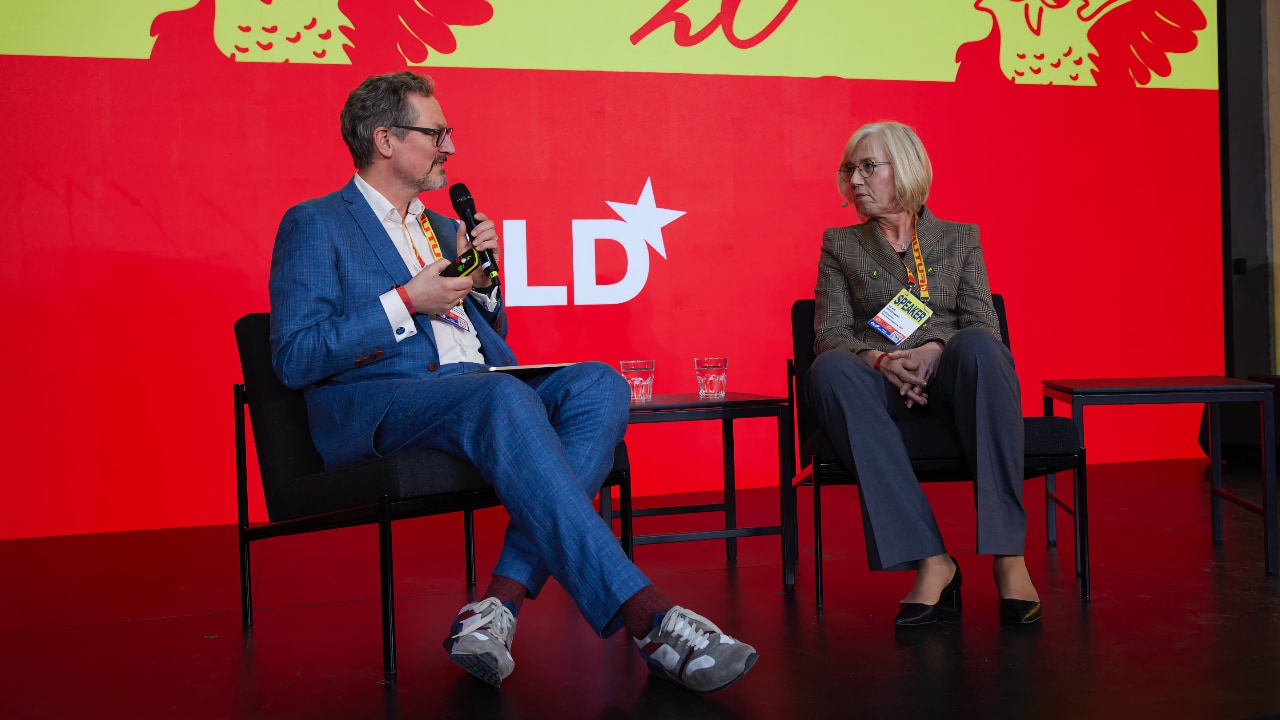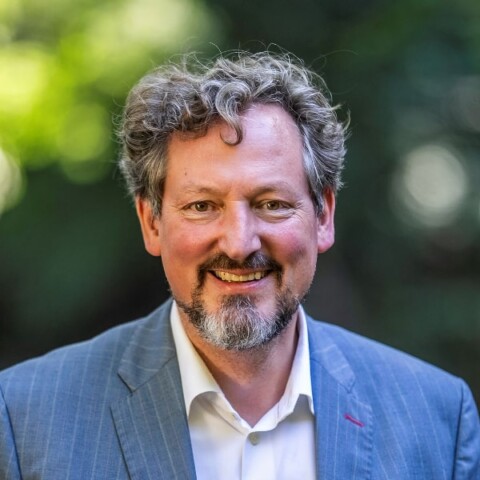Elke Reichart, Chief Sustainability and Digital Officer at Infineon, and Eckart von Hirschhausen (Foundation Healthy Planet – Healthy People) engage in a thought-provoking discussion on the intersection of technology, sustainability, and climate action.
Hirschhausen opens with a powerful reminder of the urgency of the climate crisis, emphasizing that nature’s ability to absorb CO2 is diminishing. “Nature has been giving us subsidies all the time”, he says, pointing to soil and the oceans as carbon sinks. But “these storage rooms are full, so nature is not giving us subsidies anymore.”
Meanwhile, the digital world’s energy consumption is climbing rapidly, Hirschhausen notes, and “as long as the production of electricity is not 100% renewable, everything we do with electricity is dirty, too.”
Infineon sees “digitalization and decarbonization as an overall company mission”, Elke Reichart says. The reason is not only the desire to “leave the planet in a better plance than it is now” – but also good business.
Infineon’s semiconductors are critical for renewable energy technologies like solar panels, wind turbines, and electric vehicles, which are seeing rapid global growth.
“Our products save 45 times more emissions than are generated during their production”, Reichart says. Infineon itself, she adds, is on track to achieve carbon neutrality by 2030, having already reduced emissions by 66% while doubling revenue. “We will not slow down to hit our goal of really being carbon neutral by 2030”, she promises.
She also shares how Infineon’s campus in Germany incorporates nature-focused designs, such as sponge city concepts and biodiversity restoration.




